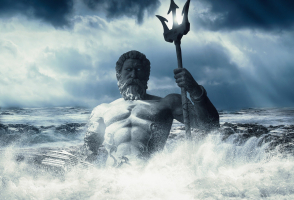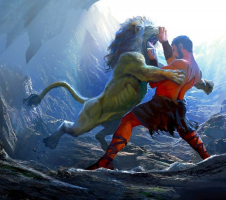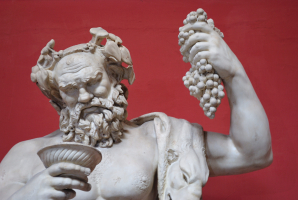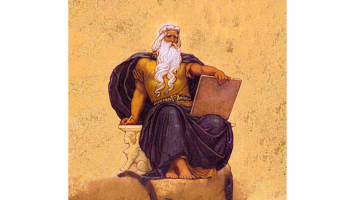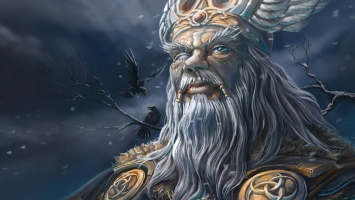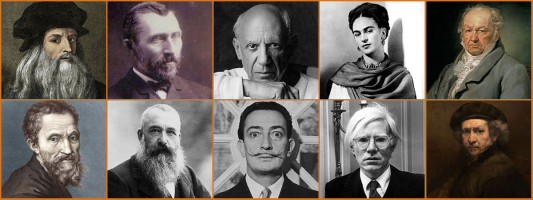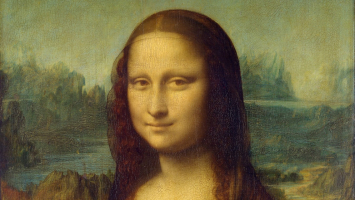Top 10 Most Famous Myths Featuring The Greek God Zeus
Zeus is the god of the sky, lightning, and thunder in Greek mythology. He was said to be the king of all other gods and thus, the most important figure in ... read more...Greek mythology. Zeus is the subject of a wide range of mythology, so this top list is about the most famous myths featuring the Greek God Zeus.
-
One of the most famous myths featuring the Greek God Zeus is about Zeus and his father Cronus. According to Greek mythology, Cronus, along with his wife Rhea, overthrew his father Uranus and ruled the universe. He was told, however, that one of his children would overthrow him, just as he had overthrown his father. Cronus had a number of children with Rhea, but he swallowed them all when they were born. On the other hand, Rhea hid her sixth child, Zeus, in a cave and instead gave Cronus a stone wrapped in his clothing that he swallowed.
Zeus was nurtured in secret by the nymphs, who fed him honey and milk with the help of the mother goat Amaltheia's broken horn. When Zeus reached adulthood, he pretended to be an Olympian cup-bearer, poisoned his father's wine with a potion, and deceived him into drinking it. Cronus then disgorged Zeus' siblings, including his sisters Hestia, Demeter, and Hera, as well as his brothers Hades and Poseidon. Zeus fought Cronus and the other Titans alongside his siblings, the Hecatonchires, and the Cyclopes. He was victorious and defeated Cronus. After that, Zeus and his brothers divided the world by lot. Zeus was given command over the sky and the air; Poseidon was given command of the seas, and Hades was given command of the underworld.
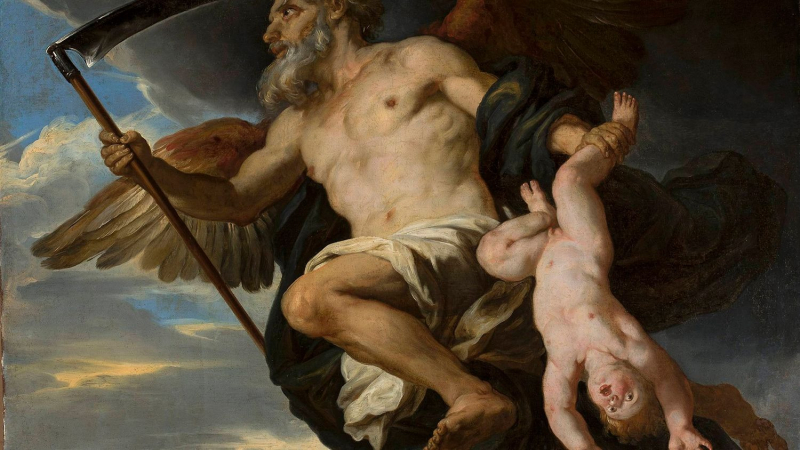
Photo: ThoughtCo 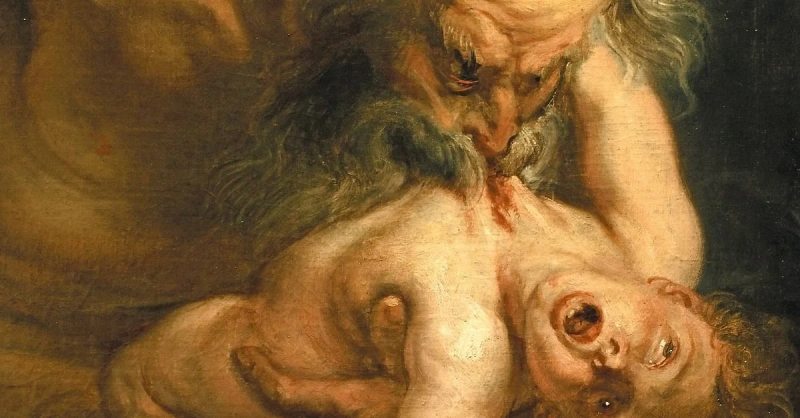
Photo: World History Encyclopedia -
Zeus' first wife was Metis, the goddess of knowledge. Before Athena was born, Zeus was told that any child born to Metis would be more powerful than their father. This alarmed Zeus, who resolved to devour Metis before she could give birth to the child. Metis, on the other hand, was already pregnant at the time, and the child grew inside Zeus. Then, one day, Zeus had a severe headache and ordered the labrys, a double-headed Minoan axe, to be used to open his head. As a result, Athena was born, fully grown and armed, from her father's forehead. Athena grew up to be Zeus' favorite daughter and one of the most powerful goddesses. She was the patroness and protector of a number of Greek cities, notably Athens, the city from which she derives her name.
Athena is frequently portrayed with symbols, such as the shield and sword with which she is said to have been born. An owl is also a representation of Athena, as the owl signifies Athena's wisdom. Through her father, Zeus, Athena had a large number of half-siblings. The Olympian gods Artemis, Apollo, Ares, Hephaestus, Hermes, and Dionysus are among these half-siblings.
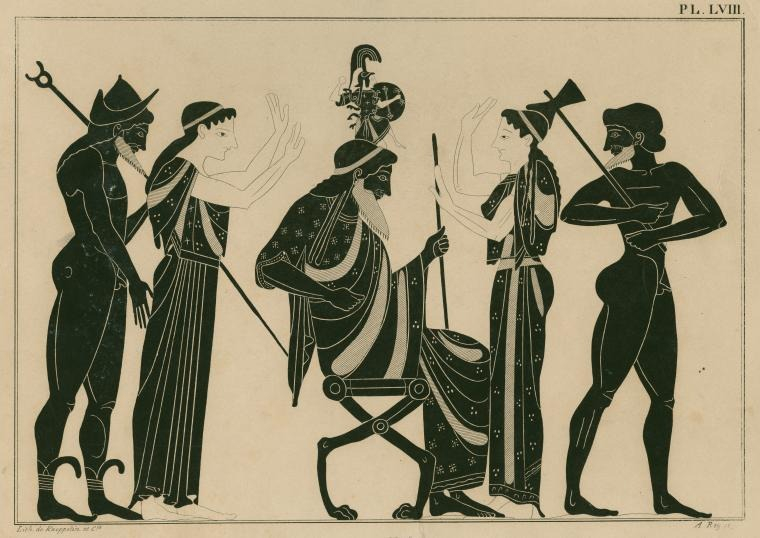
Photo: Athena's Myth 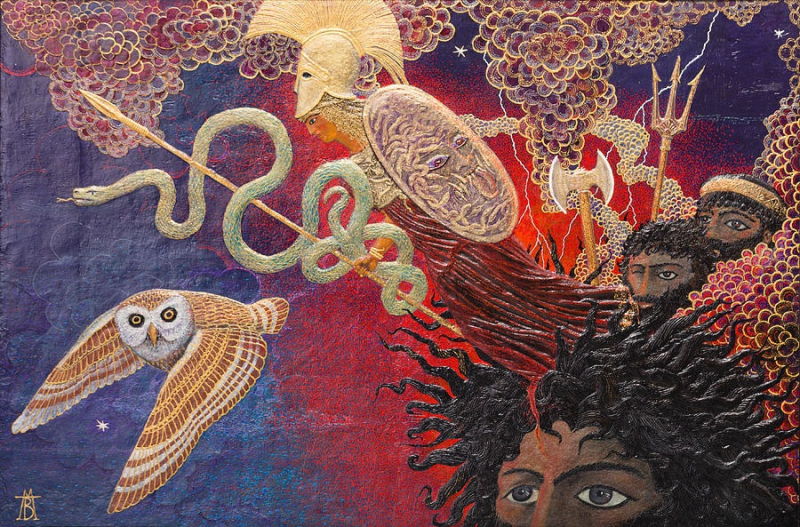
Photo: Fine Art America -
Hera was one of Zeus's sisters. Zeus and Hera is also one of the most famous myths featuring the Greek God Zeus. Zeus was fascinated with her, but she turned down his advances. Hera's affection for animals and other beings was well-known to Zeus. He turned into a cuckoo, flew outside her window, and pretend to be distressed by the cold. Hera was touched by the bird and brought it inside, holding it to her breast to keep it warm. Zeus then reverted to his original form and raped her. Hera agreed to marry Zeus because she was humiliated by being abused.
The marriage of Zeus and Hera was the first of its type in Olympia. At the Garden of the Hesperides, it was lavishly celebrated with feasting and revelry. All of the gods were in attendance, and they lavished them with lavish presents. Gaia, the earth goddess and the bride's grandmother, bestowed to Hera an enchanted tree that, when planted, would yield magnificent golden apples. Zeus and Hera enjoyed a magnificent wedding night that lasted 300 years after the festivities were over. Zeus and Hera have 4 children: Ares, the god of battle; Eileithyia, the goddess of childbirth; Hebe, the goddess of endless youth; and Hephaestus, the deity of fire, according to most traditions.
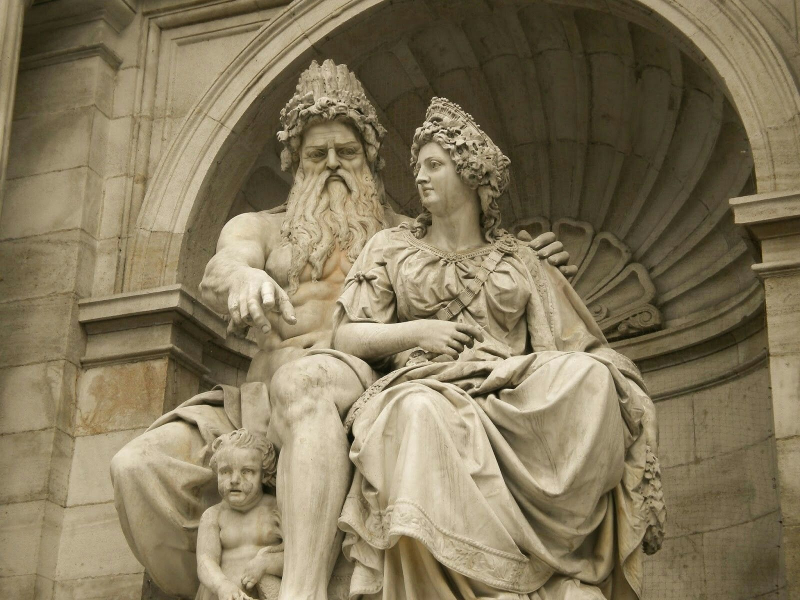
Photo: Pinterest 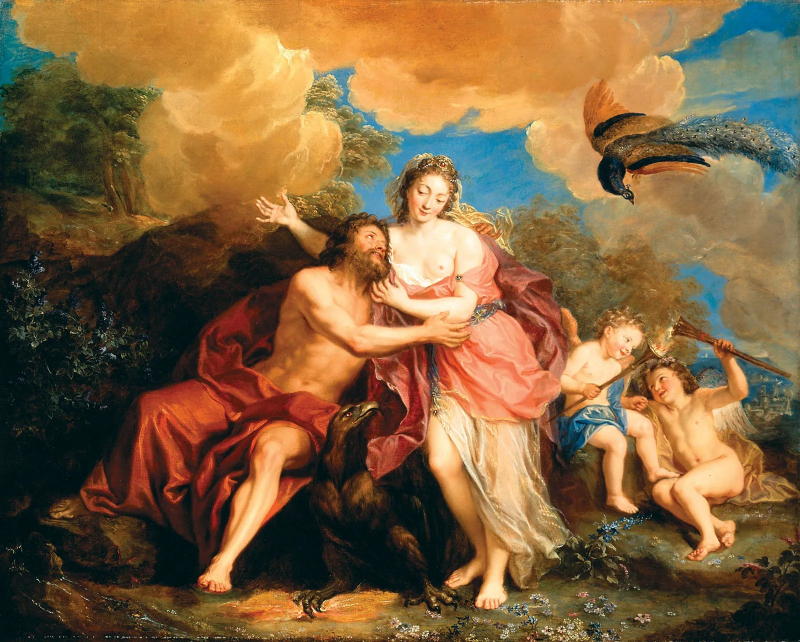
Photo: Britannica -
Despite Hera's devotion to Zeus, Zeus frequently betrayed her by sleeping with other women. She'd also never forget how Zeus had duped her into marrying him. As a result of Zeus' severe treatment of the other gods, Hera persuaded them to rebel against him. Zeus was drugged, and the other gods chained him to his bed, stealing his thunderbolt. Briareus, who had been released from Tartarus by Zeus, overheard their talk and recognized that Zeus was bound. He crept inside and unbound the gods' king. Zeus was enraged when he awoke.
Zeus seized Hera and hung her in the skies by golden chains as a punishment for her attempt to overthrow him. Hera cried out in agony all night, but no one would help her in fear of Zeus. After a night of no sleep, Zeus approached Hera the next morning and offered to free her from her bonds if she pledged never to go against him. Hera grudgingly agreed to be freed from the bonds, but she continued to use her wisdom against Zeus whenever she had the chance.
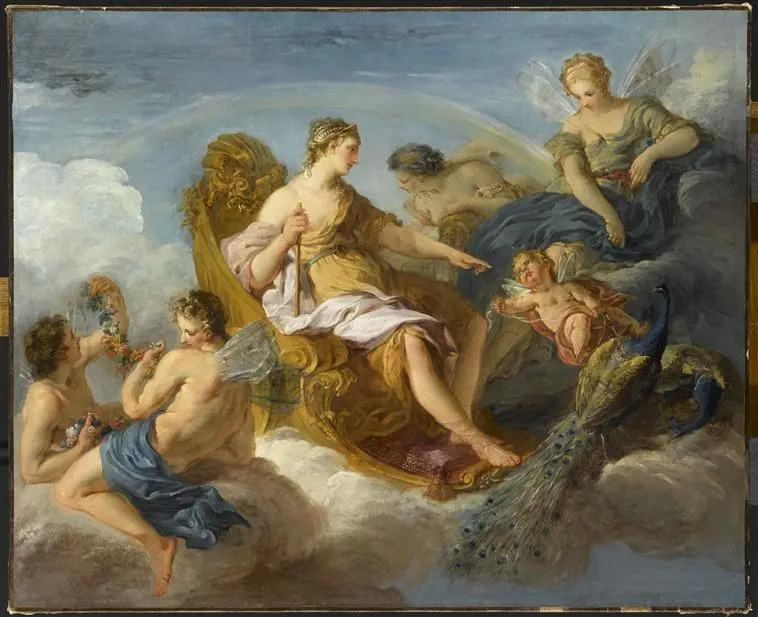
Photo: une breve histoired art Source: Because it's interesting -
Semele was a Zeus priestess. Zeus fell in love with her while soaring in the guise of an eagle. Semele became pregnant with his child after they became lovers. Hera, Zeus's wife, discovered his romance as Semele began boasting that Zeus was her lover. She pretended to be a human nurse and became friends with Semele. When Semele told her that her lover was Zeus, she pretended not to believe her and told her that she should demand that Zeus reveal himself in his true power. Furthermore, Semele would not know if Zeus loved her unless he made love to her as he did to his wife, Hera. Semele was young, and pregnancy can cause strange things, so she persuaded Zeus to fulfill her request.
When Zeus returned to Semele, she requested a boom, which he granted out of love. She then implored him to reveal his actual divine form to her. Zeus revealed himself to Semele because he couldn't break a promise. She was burned to death as a result of her inability to endure the magnificent sight. By sewing the fetus into his thigh, Zeus was able to save her child. Dionysus was born a few months later as a result of this.
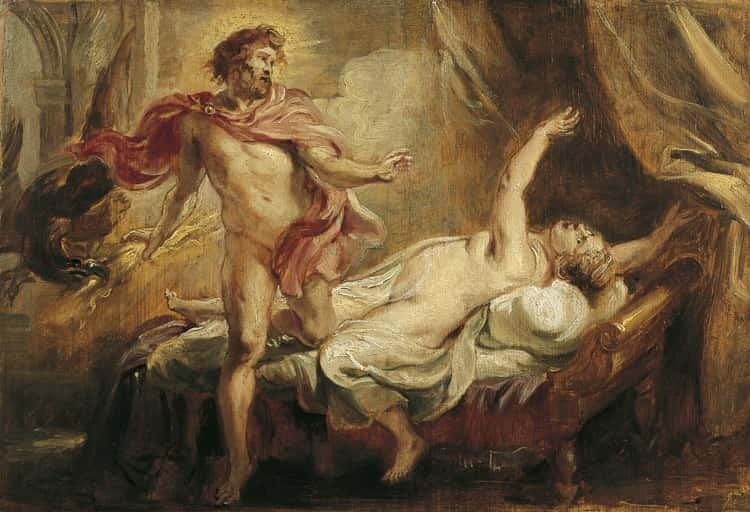
Photo: Ranker 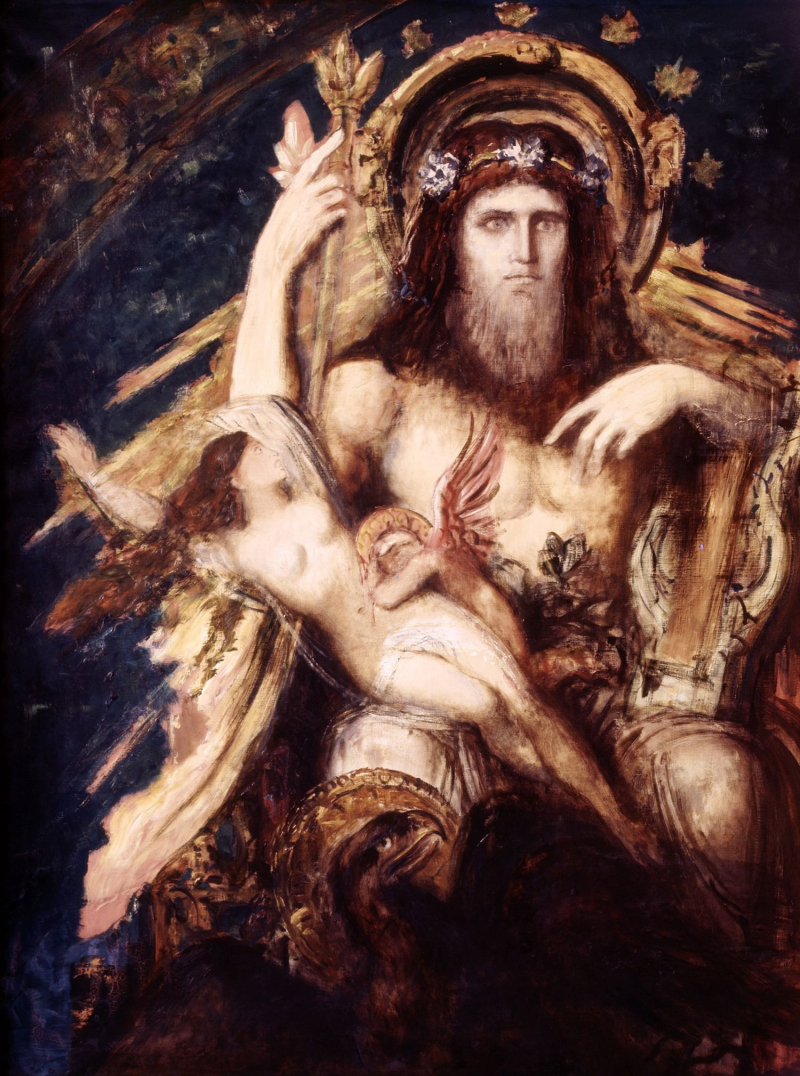
Photo: ThoughtCo -
The Aetolian king Thestius had a daughter named Leda. She married King Tyndareus of Sparta when she reached marriageable age. Leda was regarded as a stunning woman, and her beauty drew the attention of Zeus, who watched her from his perch atop Mount Olympus. Then, one day, Zeus disguised himself as a gorgeous swan and flew into Leda's arms for refuge against a chasing eagle. He then had sexual relations with her and became pregnant as a result. Leda slept with her husband Tyndareus on the same night. This led to the birth of four children: Helen (the renowned Helen of Troy) and Polydeuces, offspring of Zeus, and Castor and Clytemnestra, children of Tyndareus.
Leda And The Swan's subject also became a common motif in Renaissance and subsequent art. The description of Leda embracing a swan or carrying an egg was common in Greek art. The Capitoline Museums in Rome include a famous marble statue of Leda holding a swan on display. It is likely to be a replica of a Greek original sculpted around 400 BCE and the first known representation of the Leda and The Swan, dating from the Roman period. On Attic red-figure pottery from the mid-to-late-5th century BCE, Zeus sits on a throne with Leda and an egg (but no swan is visible).
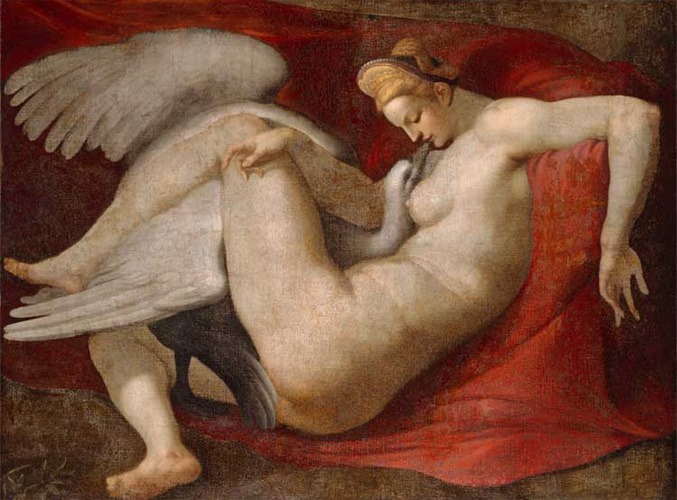
Photo: Wikipedia 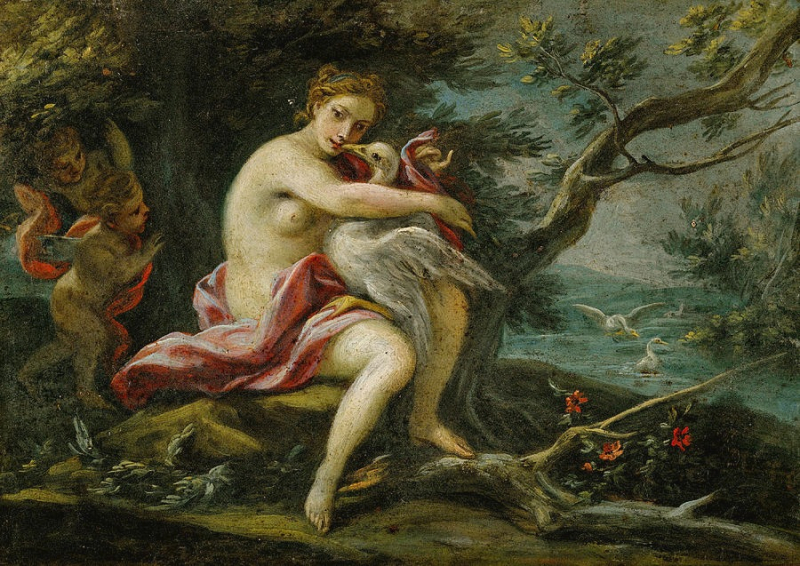
Photo: Pixels -
Europa was the ideal of feminine beauty on Earth, according to Greek mythology. Zeus was smitten by her beauty and decided to seduce her when he first saw her. He changed into a white bull and wandered among her father's herds. The bull drew Europa's attention with its snow-white body and gem-like horns. She stroked his flanks before climbing onto his back. Zeus dashed to the water with her on his back as soon as she did so. He then swam to the island of Crete with her. Under an evergreen tree, he disclosed his actual identity and mated with her.
Europa was so beloved by Zeus that he lavished her with three magnificent presents. The first was Talos, a bronze guy who functioned as her guardian. In their effort to land on Crete, the Argonauts encountered and killed a bronze giant. The second was Laelaps, a dog who could hunt whatever she pleased. Finally, there was a javelin with the ability to hit the target, whatever it was. Europa later married Asterius, one of Crete's monarchs, who adopted her boys and made her Crete's first queen. When Europa died, Zeus is said to have converted her into a star complex, and he himself assumed the form of a white bull to join with the complex. Therefore, Europa and Zeus is one of the most famous myths featuring the Greek God Zeus.
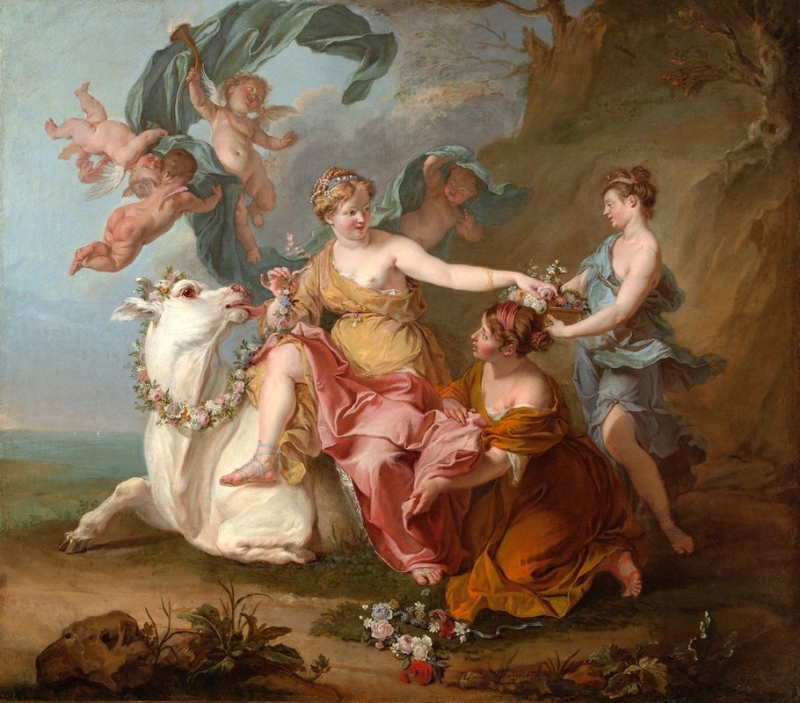
Photo: Greek City Times Source: See U in History -
Homer referred to Ganymede as "the most gorgeous of mortals." Zeus fell in love with him after catching his sight. Zeus disguised himself as an eagle and kidnapped Ganymede from Mount Ida, bringing him to Mount Olympus, where Zeus ruled as king of the gods. At Olympus, Zeus bestowed eternal youth and immortality upon Ganymede, as well as the role of cup-bearer to the gods. Later, Zeus created the constellation Aquarius (the "water-carrier" or "cup-carrier") to honor Ganymede. In the 17th century, the German astronomer Simon Marius called one of Jupiter's moons Ganymede. Ganymede was kidnapped by Zeus for more than just serving as a cupbearer. On this point, the Greek sources are a little hazy. Nonetheless, they claim that Zeus kidnapped Ganymede to serve as his cupbearer and lover. Ganymede is expressly shown as Zeus' amorous companion in later Roman literature.
According to the Hymn, Zeus took care to inform Ganymede's father that his son had been granted immortality and was now wandering among the gods. Even yet, the god realized that he needed to make a sacrifice to make up for taking the kid away from his family. Although Zeus bestows two incomparably beautiful horses upon Ganymede's father, other accounts indicate a golden vine. Furthermore, the gift is given by Zeus himself in some tales and by Hermes in others.
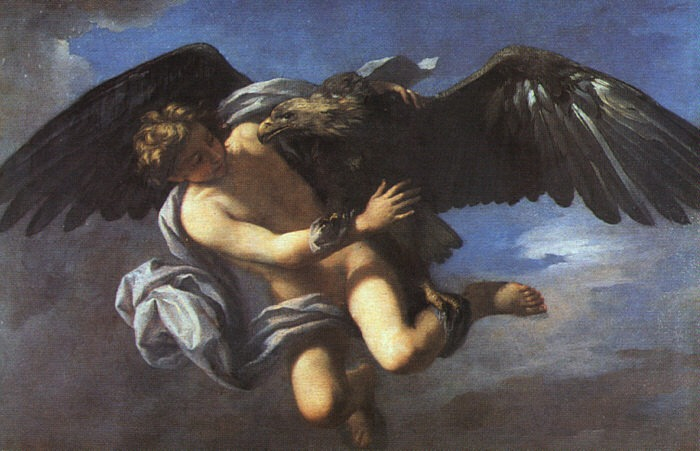
Photo: Wikimedia Commons Source: See U in History -
Prometheus was a Titan, a race of gods, who was known for his brilliance. Zeus was reportedly angry when mankind offered him animal bones wrapped in fat rather than meat. Zeus withheld fire from them as a punishment. Prometheus rejected Zeus' command and returned fire to humanity by hiding it in a gigantic fennel stalk. As a result, he facilitated human progress and civilization. Zeus, on the other hand, was enraged when he knew about the robbery. He tied Prometheus to a rock and cursed him with a daily torment of an eagle, Zeus's emblem, pecking at his liver. Every night, his liver would recover, only to be eaten the next day, locking him in an endless and agonizing cycle. Fortunately for him, after many years, the hero Hercules killed the eagle with one of his arrows while passing by one day during his famous labors.
In Athens, Prometheus was worshipped notably by potters (who, of course, required fire in their kilns), and an annual torch race was organized in his honor. Prometheus first appears in Greek art in a 7th century BCE ivory from Sparta, and on Greek pottery from around 600 BCE, which is usually as a punishment figure.
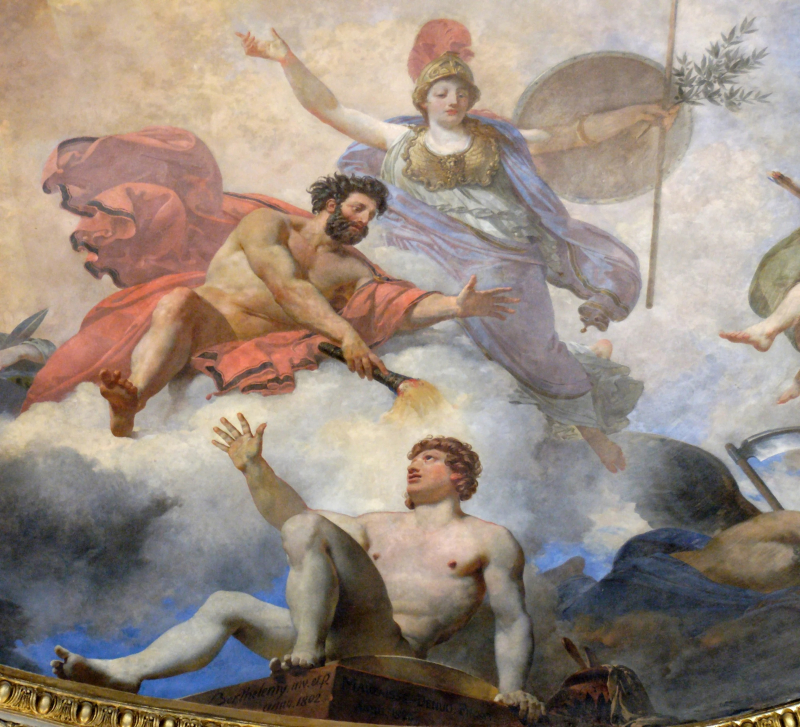
Photo: Classical Wisdom Source: Ted-ed -
Zeus hated humanity because he witnessed them indulge in terrible decadence. Outraged, he flooded the planet with his brother Poseidon's help in order to eliminate humanity. Deucalion, the son of Prometheus and the Greek equivalent of Noah, built an ark and escaped the flood with his wife Pyrrha, landing on Mount Parnassus. After that, the couple offered sacrifice to Zeus and sought advice from an oracle on how to repopulate the world. "Cover your head and throw your mother's bones behind your shoulder," they were ordered. Deucalion and Pyrrha realized that their mother was the soil goddess Gaia, and the bones were rocks. They followed the advice, and the stones softened and transformed into human bodies—humans with no connection to the gods. The other animals emerge from the dirt on their own.
Hellen and Protogenea were Deucalion and Pyrrha's offspring. Pandora the Second and Thyia are also mentioned as their children in other texts. The tale of Deucalion and Pyrrha is a combination of the Biblical Flood and the Sumerian Flood recounted in Gilgamesh's Epic; Deucalion is thus the Greek counterpart of Biblical Noah and Sumerian Utnapishtim.
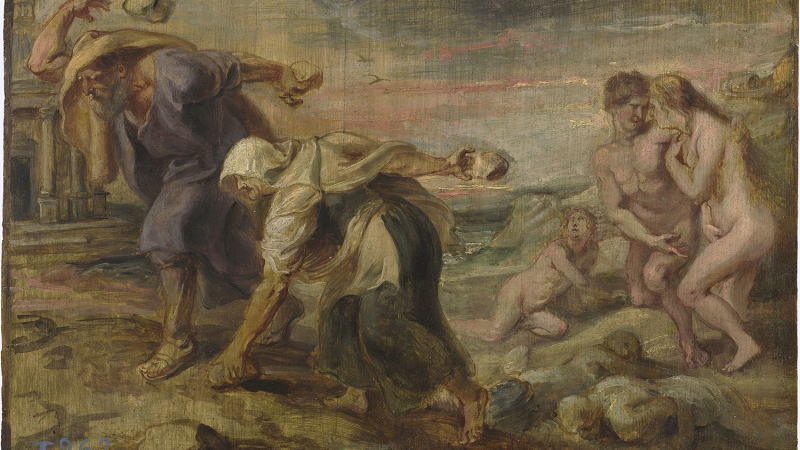
Photo: ThoughtCo Source: ChrisGrovesUK












